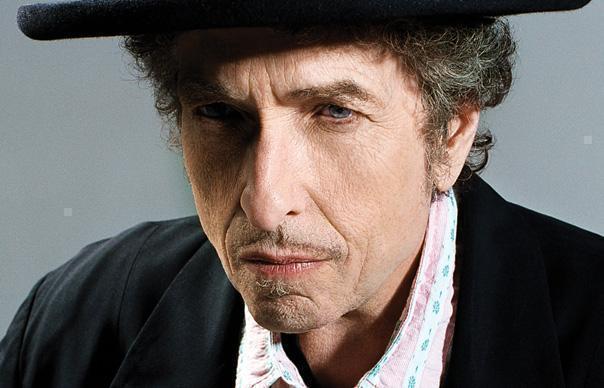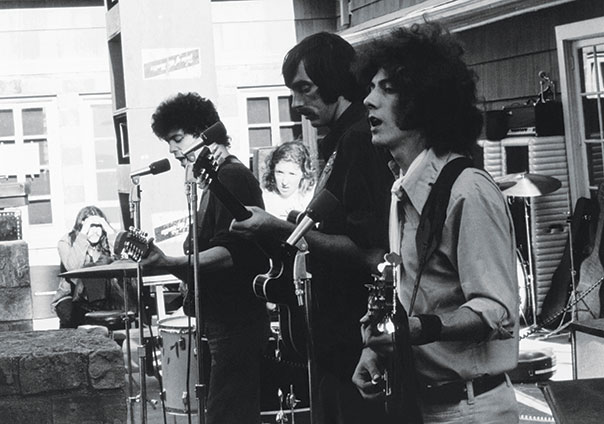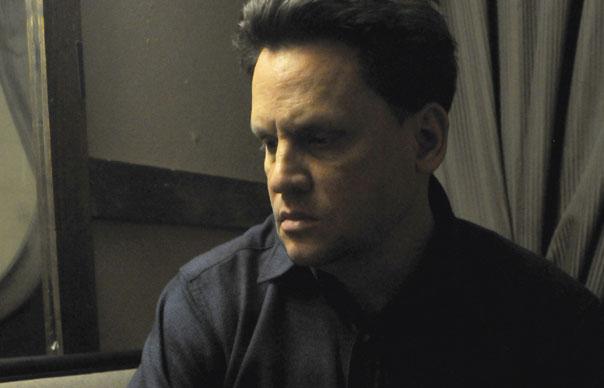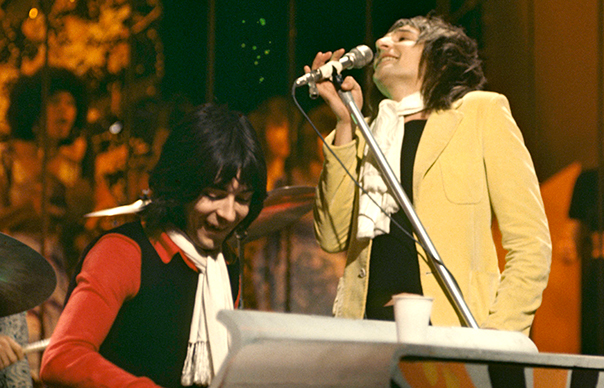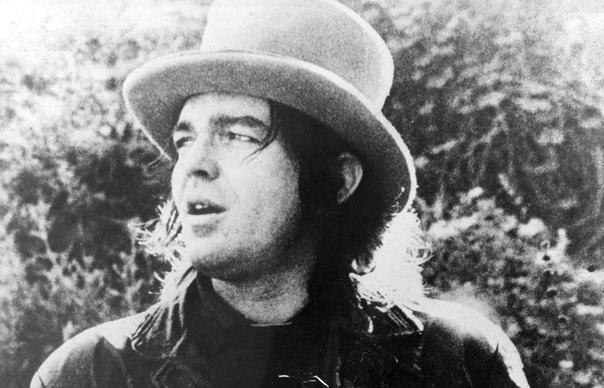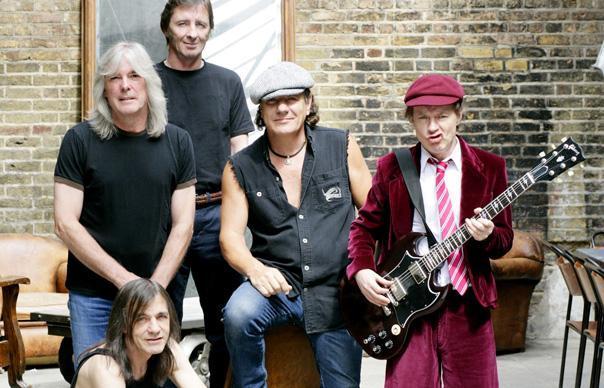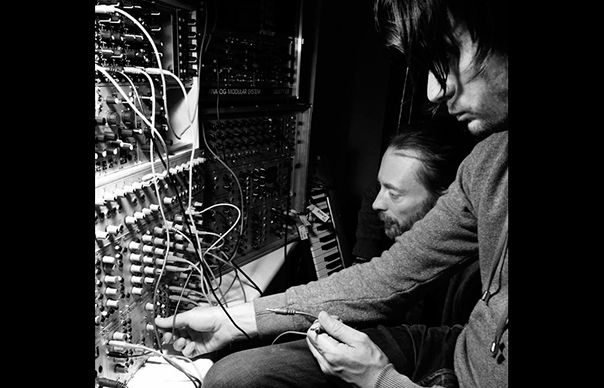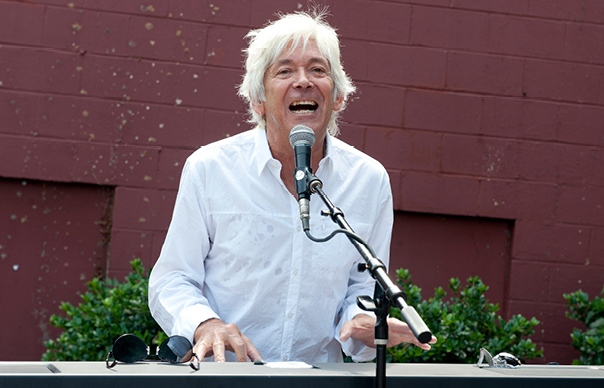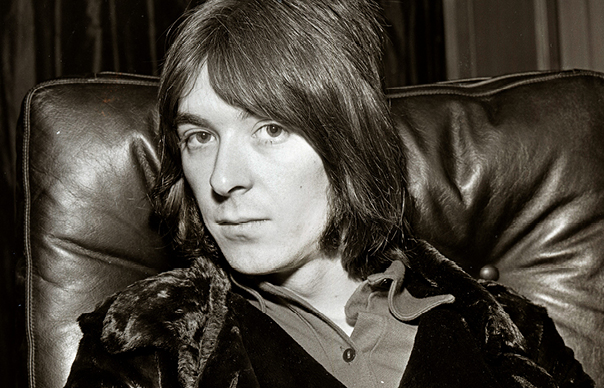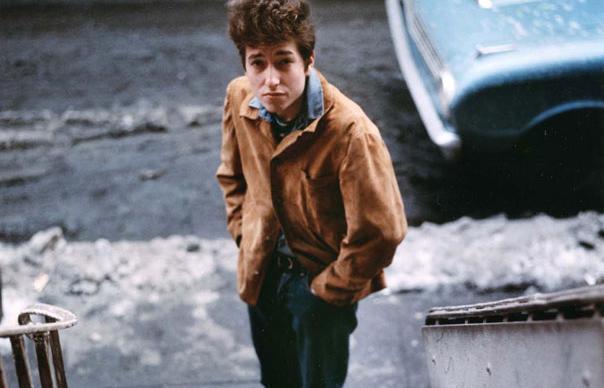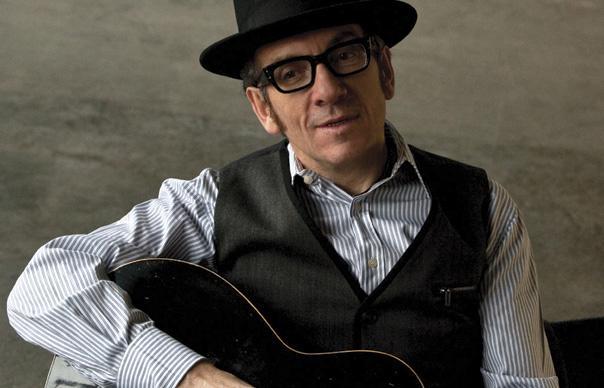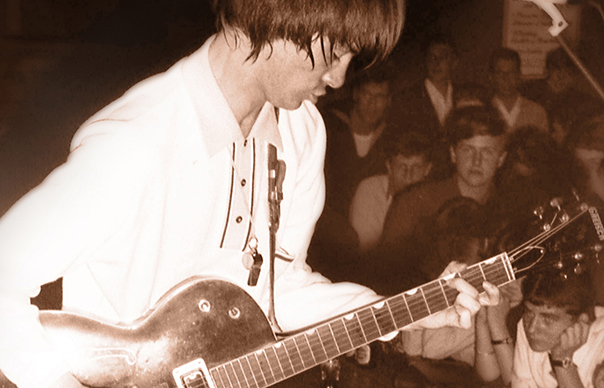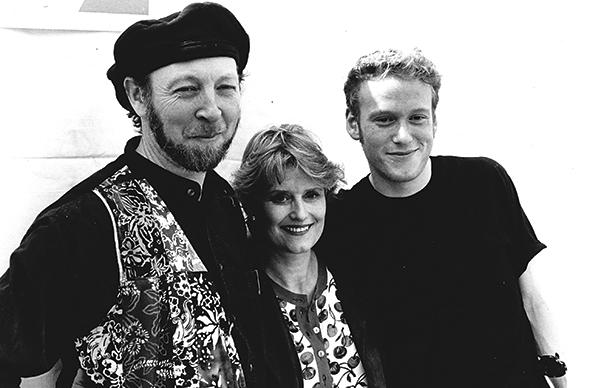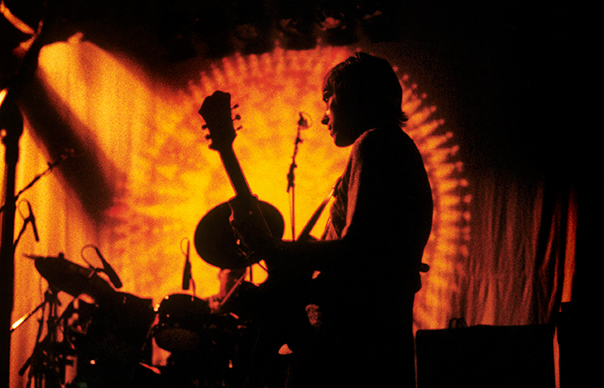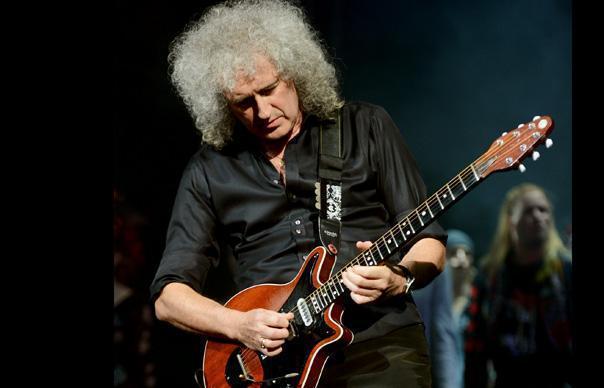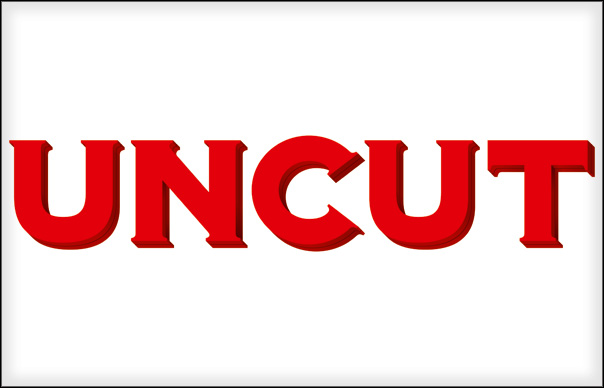The trout mask slips: Captain Beefheart’s commercial ambitions revealed…
One of the best things you can do on the Internet is a YouTube search for “Beefheart” and “German TV”. Your results will offer up clips of varying length from an appearance by the Beefheart band on the German TV show Beat Club in 1972, in which Don Van Vliet, in fine voice and apparently benign control of proceedings as the Captain, is very much the least interesting thing on display.
Behind him, one guitarist duckwalks in and out of shot wearing a silver suit. Another, hugely tall and thin, wails on slide guitar with the animal grace of a giraffe on a bouncy castle. A third guitarist stays nearly still, camouflaged (were his long beard and hair insufficiently doing so) behind dark glasses, the previous generation’s fears about the counterculture in a single human entity. The drummer is wearing a monocle.
Individually, these were Mark Boston, Bill Harkleroad, Elliot Ingber, and Art Tripp. Collectively, this was the latest incarnation of Beefheart’s storied Magic Band, essentially the one anthologized on this four disc box set: covering 1970’s Lick My Decals Off, Baby, through 1972’s The Spotlight Kid and the band’s third masterpiece, Clear Spot (also 1972). It is an indication of the singularity of Beefheart’s vision that this was not only the version of his group he felt would bring him some mainstream success, but the one he put together while opposing himself to “freak” culture.
While it culminated in the sleek blues architecture of Clear Spot it, the period covered by Sun Zoom Spark is certainly not untouched by freakdom. Six months previously, the band had been living in a shared house in Woodland Hills, California subsisting on a diet of welfare cheese amd soya beans, sustained mainly by the Captain’s aggressively disciplinarian ideas about group composition. The regime yielded the double album splurge Trout Mask Replica, but was not incorrectly described by Frank Zappa, the album’s producer, as the “anthropological” incarnation of the group. A testimony to Beefheart’s persuasiveness is that after the trauma of completing this essentially unmarketable work, he had managed to get the band signed to Warner Brothers.
Lick My Decals Off, Baby (here for the first time remastered on CD) was major label funded, rehearsed on a Warners film lot amid Bonanza stage sets, and even had its own TV commercial. It was, however, still very much the product of Van Vliet’s autocratic composition – the songs were assembled from his taped piano fragments on guitar by Bill Harkelroad, as they had once been transcribed by drummer John French. These Trout Mask-style works were then recorded by Phil “Boogie” Schier, and transformed into a record of hellacious intensity.
There are some incredible things on Decals. “Peon” and “One Red Rose That I Mean” find Bill Harkleroad on courtly solo guitar, or pursued by Art Tripp (a Zappa alumnus) on marimba. “I Love You You Big Dummy” grooves oddly, while “Smithsonian Institute Blues” amusingly excavates trad sources. In the TV ad, masked Magic Band members played egg whisks and cheese graters, while Beefheart, with his foot, gently overturned a bowl of bread mix in the middle of a road. For all its artistic success, in commercial terms, Decals was no less a waste of dough.
Mindful of the commercial inroads that had historically been made by bands like The Doors, Creedence, and Canned Heat with something like his own blues source material, on The Spotlight Kid, Beefheart changed his approach. The tempos on the album are slower, and the material – say “I’m Gonna Booglarize You Baby” or “Click Clack”, a magnificently odd train song – attempt to reconcile commercially successful blues and boogie idioms with his own oblique approach.
Free playing – freedom generally – wasn’t encouraged in the Magic Band, but having retained his services after the Decals tour of 1971, Elliot Ingber’s untameably hairy wailing on guitar was accommodated here on “When It Blows Its Stacks” and the later instrumental showpiece, “Alice In Blunderland”. According to Lowell George, Jimi Hendrix was intimidated by Ingber’s playing, and no wonder: his “Blunderland” solo promotes a goodwill which lasts through The Spotlight Kid, all the way to the version on the extras disc, an hour or so later.
Warners bankrolled hours of studio time at the Record Plant in late 1971, allowing Beefheart to work on ideas not just destined for this record, but filling a well which sustained him for future albums. As bootlegs from the period have shown, there’s a good three hours of stuff out there from these and the so-called “Brown Star Sessions” for Clear Spot. On the fourth disc here, you can find the pick of it: a tender, jazzy take on “Harry Irene” (later on Bat Chain Puller), and the amusing “Kiss Where I Kaint”, which sounds like a cartoon theme. “Two Rips In A Haystack” is a lovely, soulful composition with harmonica.
There are also songs the fan will know. “Best Batch Yet”, and “Dirty Blue Gene” (here in two different versions) were to make up the backbone for 1980’s Doc At The Radar Station. “Run Paint Run Run”, and “The Witch Doctor Life” threw a full decade into the future and the final Beefheart album Ice Cream For Crow. It’s exciting stuff, but you wonder if this had been curated with the care of Revenant’s Grow Fins 15 years ago, this wouldn’t have developed from a taster to a fully-indexed trove.
With Elliot Ingber’s skybound soloing, Art Tripp’s bony marimba and Bill Harkleroad’s perversely swinging stop-start riff, “Pompadour Swamp” (whose title was used on Bluejeans And Moonbeams and which ultimately made it on to Shiny Beast/Bat Chain Puller as “Suction Prints”), is the true transitional oddity of the disc. The first escape act it performed, however, was from Clear Spot. Recorded with Ted Templeman, who later helmed commercial successes for the Doobie Brothers and Van Halen, Beefheart’s technical plans for the record were met with a firm rebuttal.
With Templeman taking care of recording, Beefheart’s bigger blues picture received a spectacular update. A close cousin to Safe As Milk, Clear Spot fairly jumps with raw modern blues and soul. In the absence of Ry Cooder, guest slide was played by Cooder’s brother in law, Russ Titleman. Every bit as odd as a Beefheart record should be (have you heard “Big Eyed Beans From Venus”?), the album found room for everything the band had to offer: the intricacies of Harkleroad’s playing, the stately and powerful swing, and Beefheart’s own ambition. There was even an unsuspected quality: soul. It remains a magnificent, truly indispensible album. Commercially, it peaked at #191 in the US charts, 60 places lower than the previous record.
JOHN ROBINSON
Q&A
ART TRIPP
The band had only recently come out of its most intense period – Trout Mask Replica and the communal living in Woodland Hills, a time of intermittent psychological warfare. Why did you get involved in that kind of scene?
Don was really after me to join the band. I was disgusted with the way that the Mothers had ended, and I told Don that I wanted something solid. He readily agreed. Later, after I’d joined the band, I could see that Don wasn’t much interested in personally rehearsing as he was in challenging the others, and finding excuses why he couldn’t rehearse. He’d start band “talks” just to avoid rehearsing. It was all very psychological, you know, but looking back, it was pure horse pucky.
To some of the other guys, it seemed as if Don’s meeting (wife) Jan marked a turning point in his behaviour toward the band. What was your impression of him, and of Jan?
Jan was a wonderful gal: attractive, always smiling, great sense of humor, and very bright. Don was in love. I don’t know if his behavior changed, or if it was simply that there was less of it, since she had most of his attention. Soon he realized that he couldn’t be married to her and still live in that little house. Don and she got a little place nearby.
How did the Decals relate to Trout Mask?
“We’d composed and rehearsed “Decals” at the Trout House, and also at my place in Laurel Canyon. The music, of course, was fascinating. Some of the parts were written for guitar, which I transcribed for myself on marimba. Bill would play the parts, and I would write them down in score form. I think the single most telling thing about the “Decals” period was that Don and I actually believed that the music would be commercial! Shows you how far out we were at the time. In many ways “Decals” was more advanced than was “Trout Mask”. It was better arranged and performed.
How far was there an attempt to shoot for commercial success with The Spotlight Kid?
“Oh, yes. I was one of the promoters of attempting to be more commercial. But Don and management felt it too. The “starving artist” label is captivating only in hindsight. I believed that we’d skyrocket right into obscurity with the art material. But looking back, it was a mistake on a lot of levels to try to make such radical changes.”
You moved to Northern California to live in a compound. What was that like? Was money was tight?
“We all had separate apartments in a compound probably intended for tourists. I liked it in Ben Lomond (near Santa Cruz), once I got used to the change from L.A. During the Hippie era Santa Cruz, as was the whole state of California, loads of fun. Unfortunately they’re now totalitarian nightmares. If morale was low it was because we weren’t making any money, and a few of the guys weren’t getting enough to eat. I went to town a lot and hustled money by playing pool. That kept me in food, cigarettes and beer. Whenever guys are together with no money, but pouring a lot of energy into music projects, there’s going to be strife and stridency.
Clear Spot is a fantastic album. How much of that would you put down to the skills of Ted Templeman?
“Ted Templeman was certainly the catalyst for “Clear Spot”. He was able to add a more commercial sound, and assured that we keep things simple. I think Ted was probably the only guy who could have gotten that high quality of an album from our material.”
How long had it taken to develop this material. How were you working on these songs now?
“Many of the songs were simply germs of ideas that had been floating around for a couple of years. There was an increased effort after (i)Spotlight Kid(i) to continue in a more commercial vein. Most often, Don’s notion of a completed “song” was a single line or phrase on a tape or a cocktail napkin, with nothing embellished further than that. Bill was a big help in developing the material.”
Don was still interested in making a commercial record?
“Yes, we were all tired of poverty. There was a concerted effort to head in a more commercial vein. In hindsight, that new direction confused and disappointed many of our arts fans; and it may have perplexed record labels over what type of act they were being asked to back and promote. Our existing fans were not ready to accept us as a mainstream rock band.”
It sounds as if it might have been a fun album to make – “Big Eyed Beans From Venus” is magnificent. Was it enjoyable?
“Yes, it was very enjoyable. For one thing it was a pleasure to have a top producer like Templeman to keep things moving along. He was a very low key guy with loads of talent and experience. He was also something of a baffle or anchor with Don. That is, Ted was able to keep Don’s mouth shut, and the sessions on track. “Big Eyed Beans” was fun to play, and very exciting. For several tours, we always ended the main portion of the show with that song.”
INTERVIEW: JOHN ROBINSON


